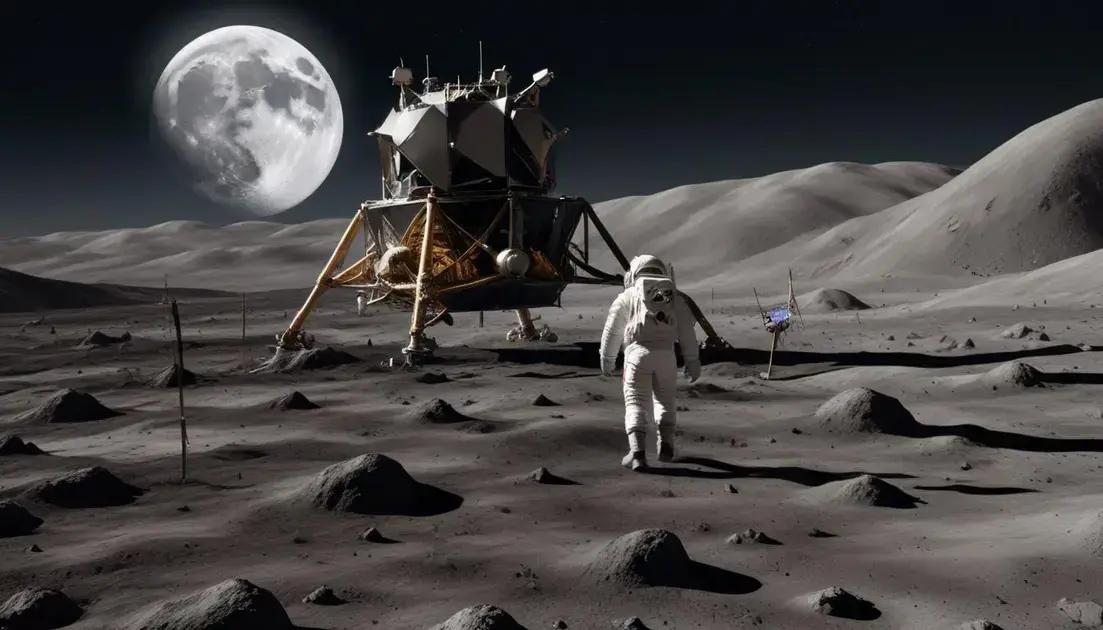
Newton and the Law of Gravitation: Unifying the Cosmos
Gravity is a fundamental force that governs how objects in the universe interact. It pulls everything, from apples to galaxies, forming structures and influencing their movements. Newton’s law of gravitation explains that every mass attracts another, affecting everything we see. This force not only keeps us grounded on Earth but also plays a crucial role in shaping our universe, including the orbits of planets and the formation of black holes. Understanding gravity helps us unlock mysteries related to dark matter and the universe’s expansion.
Gravity—a force that we often take for granted—has shaped the universe as we know it. Curious about how something so invisible can hold everything together? Dive in!
The story behind Newton’s discovery of gravity
The story of Newton’s discovery of gravity is fascinating and inspiring. It all started with an apple falling from a tree. As the legend goes, Newton wondered why the apple fell straight down instead of sideways or even upward. This simple question led him to explore the forces at work.
Newton began to think about motion and the forces acting on objects. He realized that there must be a force pulling the apple toward the ground. This wasn’t just happening to apples, but to everything around us.
Through careful observation and thought, Newton developed his famous law of gravitation. He explained that every object in the universe attracts every other object. The strength of this attraction depends on the mass of the objects and the distance between them.
This breakthrough changed how we see the universe. It showed that the same force pulling an apple to the ground also keeps the moon in orbit around the Earth.
Newton’s discovery of gravity opened the door to modern physics. It made us understand that the universe is governed by natural laws. Gravity, as he described, is at the heart of many phenomena we observe.
Today, we still talk about Newton’s laws of motion and gravity. They form the foundation of physics and have a profound impact on our understanding of everything from falling apples to orbiting planets.
How gravity affects our everyday lives
Gravity affects us every day, even if we don’t notice it. It’s the force that keeps our feet on the ground. Without gravity, we’d float around like astronauts in space!
When you drop a ball, gravity pulls it downward. This simple act happens everywhere. It affects how we play sports, walk, and even sleep.
Think about riding a bike. Gravity helps you stay on the path. It keeps you from tipping over. If there were no gravity, you wouldn’t be able to ride at all!
In the kitchen, gravity helps when you pour a drink. It makes liquid flow into your glass. If gravity didn’t exist, the drink would just hang in the air.
Also, gravity is crucial for our planet. It keeps rivers flowing, rain falling, and the ocean’s tides moving. These actions shape our environment.
Even our bodies rely on gravity. It helps us develop strong bones and muscles. When we jump, gravity pulls us back down, making our legs stronger over time.
So, each time you step, run, or simply stand, you’re feeling the effects of gravity. It’s a constant part of our lives and essential for everything we do.
The unification of forces through the law of gravitation
The unification of forces through the law of gravitation is a big idea in science. Newton showed us that gravity isn’t just a force for falling objects. It connects everything in the universe.
Before Newton, people understood different forces, like why things fall or why planets move. But they didn’t see how these forces worked together.
Newton’s law says that every mass attracts every other mass. So, Earth pulls us down, but it also pulls the moon into orbit. These interactions are all about gravity.
This law means that gravity affects both tiny objects, like apples, and huge ones, like planets and stars. They all interact through gravity.
Understanding this helped scientists see that there are rules governing our universe. The same force that brings apples down keeps the Earth and moon in sync.
By recognizing gravity as a universal force, we can explain many phenomena—like why the planets orbit the sun. It’s all about how mass and distance play a role.
This knowledge laid the groundwork for future scientists. They built on Newton’s ideas to explore more complex theories about how forces interact.
Today, we still rely on Newton’s law of gravitation to understand both small and large-scale movements in space. It’s a crucial part of how we view the world around us.
Exploring the implications of gravity in the cosmos
Exploring the implications of gravity in the cosmos opens our eyes to amazing discoveries. Gravity is not just important on Earth; it shapes everything in the universe.
Stars, planets, and galaxies all exist because of gravity. It pulls matter together to form these giant structures. Without it, our universe would be a very different place.
In space, gravity affects how planets orbit stars. For example, Earth orbits the sun because of the sun’s strong gravitational pull. This dance keeps our planet in a stable position.
Gravity also influences how galaxies form and move. It helps pull galaxies toward each other, creating clusters. This gives us insight into how our universe is structured.
Black holes are a fascinating consequence of gravity. When a massive star collapses, it creates a region with a gravitational pull so strong that nothing can escape. This helps us understand the limits of our universe.
Another interesting aspect is the effects of gravity on time. According to Einstein’s theory of relativity, time moves slower in stronger gravitational fields. This means time ticks differently on Earth than in space.
As we study gravity further, we uncover secrets about dark matter and dark energy. These mysterious forces also play a role in the universe’s expansion, which challenges our understanding.
Gravity isn’t just an Earthly force. It’s a key player in the universe, shaping everything we see around us. The more we learn, the more we realize how interconnected everything is.
Conclusion
In conclusion, understanding gravity is crucial for grasping how our universe works. From the way apples fall to the incredible forces shaping stars and galaxies, gravity plays a key role in everything around us. Its effects go beyond Earth, influencing the movement of planets and the formation of galaxies.
This force connects all objects in space, creating a balance that enables life as we know it. As we explore gravity further, we unlock secrets about black holes and the very fabric of our universe.
By studying gravity, we gain insights into dark matter and the mysteries of cosmic expansion. These findings not only enhance our knowledge but also inspire future discoveries that can change how we view the cosmos.
So, whether it’s the simple act of dropping an apple or understanding the vast universe, gravity is a fascinating topic that continues to motivate scientists and curious minds alike.


